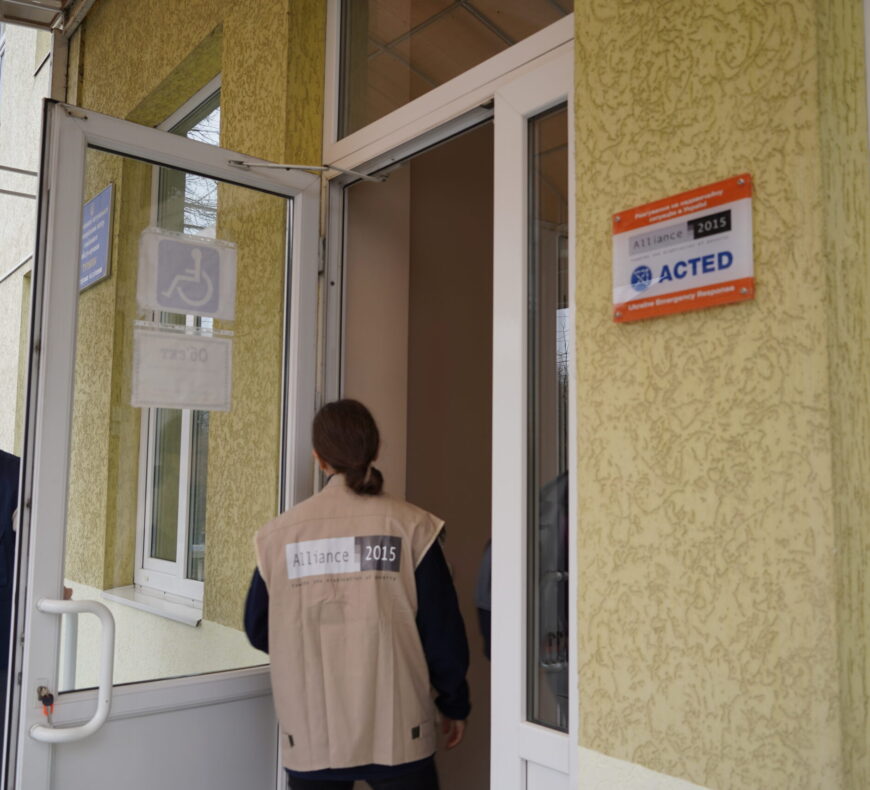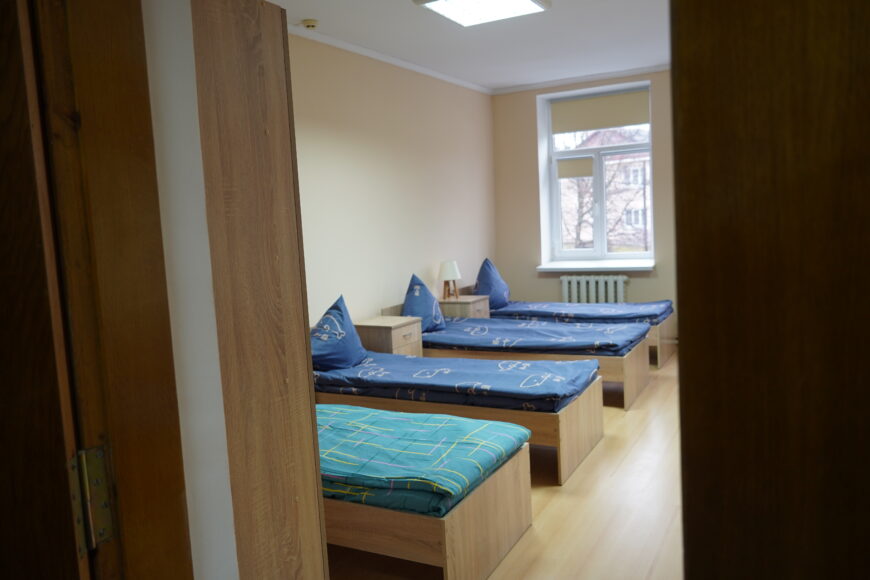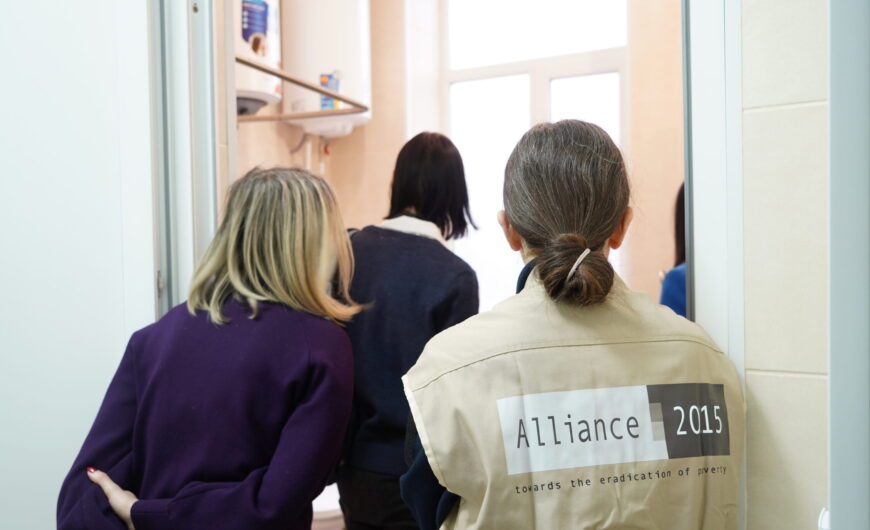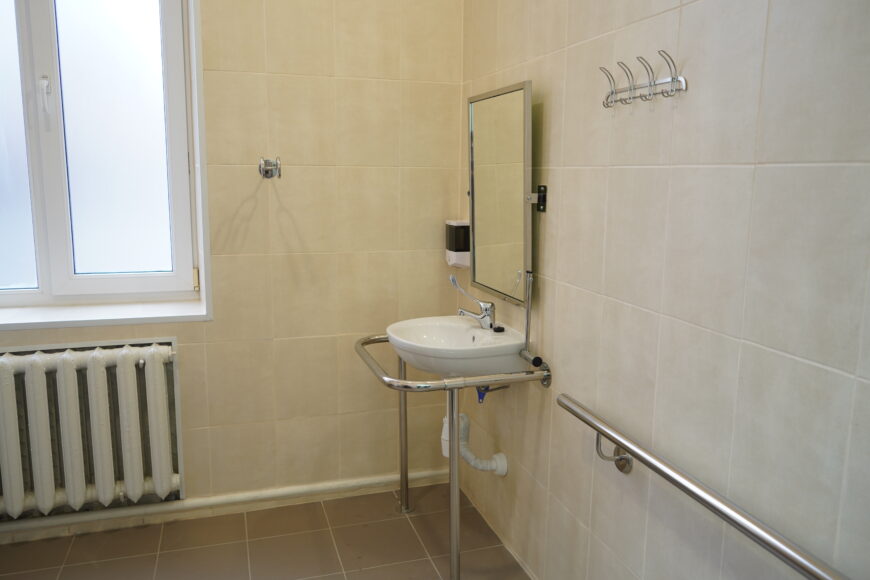Since Russia’s full-scale invasion, Ukrainians are suffering the full effects of the war. Waves of missiles and drones have shaken the country to its core. Civilian infrastructures such as hospitals, electrical infrastructures and schools have been targeted by rockets. The number of civilian casualties and injuries keeps growing. More and more people are now living with disabilities and mobility issues while being forced into displacement.
In times of crisis, it is even more crucial to ensure that people with disabilities receive assistance and protection services tailored to their specific needs, including accessibility to safe shelter and housing solutions. Prior to the escalation of the war, Ukraine was not well equipped to meet the needs of people with disabilities and reduced mobility, and the destruction of civilian infrastructure worsened their access to basic services. The humanitarian response must therefore be particularly focused on vulnerable populations and their specific needs.
ACTED, with the support of Alliance2015, is therefore providing dignified and adequate accommodation while addressing the lack of adapted infrastructure for people with disabilities.
Creating spaces where people with disabilities fleeing the conflict can feel safe again
Many of the collective centers that decided to host IDPs were not adapted for permanent residence of large numbers of people. Some slept on mattresses lying on the floor, mostly in classrooms as most of these shelters were deployed in educational institutions. Toilets and washrooms designed for pre-school children were not adapted to many adults, showers were improvised, and these collective centers could not meet the needs of so many people, making daily life difficult for people with disabilities.
According to the Office of the UN High Commissioner for Human Rights, around 14,023 civilians have been injured since the beginning of the conflict, many of whom are left with limited mobility and are struggling to move to safer towns.
To address their specific needs, ACTED has supported the establishment of collective centers, more specifically a 24-hour shelter with a day care unit for young people with disabilities in Chernivtsi.

In this facility, ACTED has renovated seven rooms into bedrooms for 30 people as well as a recreation room. Two sanitary blocks, washing machines and dryers were created. ACTED has also installed 8 powerful solid fuel boilers to keep everyone warm when temperatures drop below zero. A new kitchen and a dining room were equipped and tailored for disabled people.
In addition to these renovations, the greatest asset of the shelter is its built-in elevator, which ensures full accessibility and a generator to face regular power cuts.
The shelter was completed in January 2023 and since then families from eastern Ukraine have started to move in. One of the residents is Volodymyr who comes from Bakhmut. The city is on the very frontline of hostilities, he and his mother had to flee and found refuge in in Chernivtsi.
When my father was alive, he would carry me outside and a friend of mine would also help me. When both of them died, I was stuck at home, my flat being on the fifth floor. With my mother we managed to flee to Chernivtsi. Thanks to the accessibility of the shelter, I can now go outside, have a coffee, just be among people.
The improvement of collective centers by ACTED, with the support of Alliance2015, has allowed displaced Ukrainians to be accommodated in the most dignified conditions, to keep them warm during the winter despite power cuts, to prepare hot meals and to charge their phones to access information and be warned in case of air raid alarms. In each of the renovated shelters, ACTED has installed facilities for people with disabilities or reduced mobility as well as for the elderly, allowing them to finally regain independence and live in more comfortable conditions.




